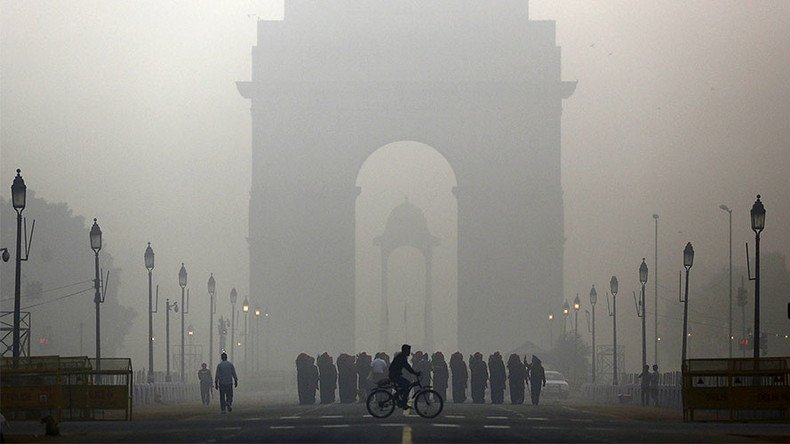The production of goods around the world generates pollution that kills hundreds of thousands of people a year; according to a study published in the scientific journal Nature.
More than 750,000 people die prematurely every year from the dirty air generated by making goods in one location and selling elsewhere. That is about a fifth of the 3.45 million premature deaths from air pollution.
Twelve percent of those deaths, about 411,000 people, are a result of air pollution that has blown across national borders, said the report.
The environmental burden of manufacturing falls mainly on Asia, the home of cheap exports and lax environmental protection.
Nearly 500,000 people succumb to smog-related illness each year on the continent, including more than 200,000 in China and more than 100,000 in India.
The main culprits behind the phenomenon are buyers in the West, the study found. It linked consumption in Western Europe to almost 175,000 early deaths abroad and consumption in the US to more than 100,000.
“It’s not a local issue anymore,” said study co-author Dabo Guan, a professor of climate change economics at the University of East Anglia.
Another co-author Steven Davis, who’s an atmospheric scientist at the University of California, Irvine, told AP "We have a role in the quality of the air in those areas."
"We're taking advantage of our position as consumers, distant consumers," he said.
According to the research, China and India also have pollution that travels elsewhere and kills between 65,000 and 75,000 people in other countries. India's migrating pollution kills more because China's pollution, which hits Japan and South Korea, often heads over the Pacific Ocean where its effects dissipate, Davis said. India's pollution heads directly to more populous neighboring countries.
Scientists say producing more goods locally along with stricter emissions rules would change where deaths occur and potentially reduce overall deaths.
However, an air pollution expert at Carnegie Mellon University in Pittsburgh, Peter Adams claims production is likely to remain concentrated in Asia. It will have to be up to those countries to better regulate their industrial emissions, he said, adding "relying on consumer altruism," won't be enough.

